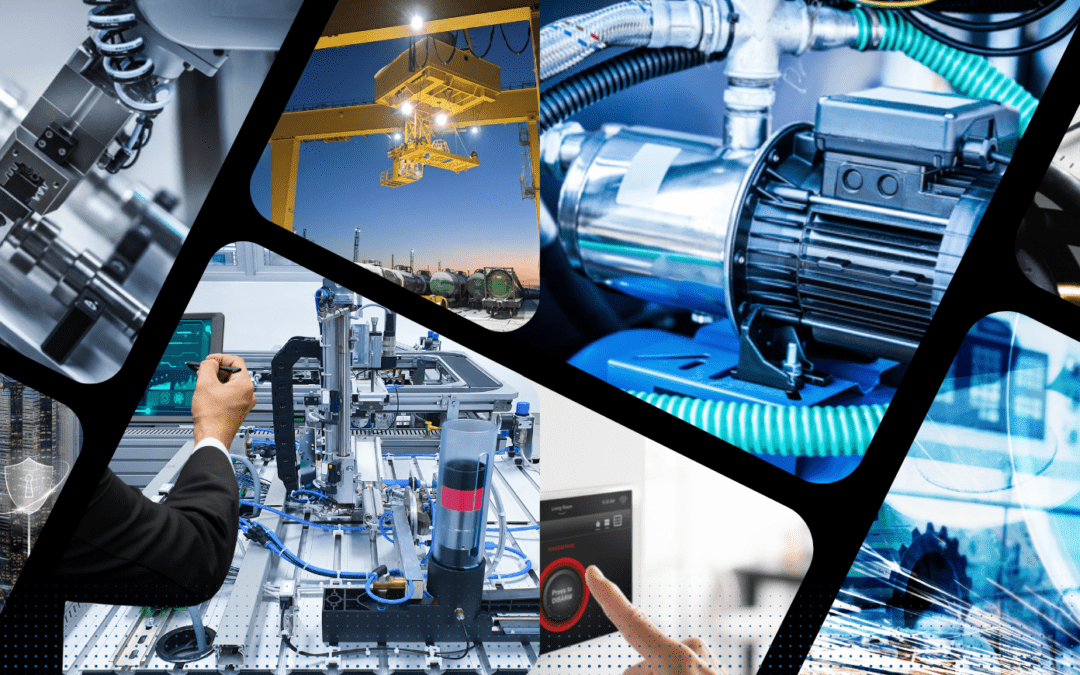The modern world industry faces rapid digitalization, making automation of technological processes inevitable for a company to be successful in the market. It also allows for saving the customer’s time, material resources, more efficient project planning and management, more accurate result analysis, and cost-effective spending.
Digitalization involves automated production control operations such as, for example, automatic deduction of warehouse inventory based on the readings of an accounting device installed on the production line or automatic calculation of resources consumed per unit of production. Digitalization processes occur above the level of automation in the hierarchy. Therefore, successful digitalization of processes is only possible in a properly and sufficiently automated industrial company.
When talking to industrial companies, we often notice that they are hesitant to trust the latest technologies. Despite the fact that labor shortages and increasing costs should encourage the need for automation and digitalization, this process is happening relatively slowly. To encourage this process, our experienced team offers an audit that provides recommendations for company’s automation/digitalization and an investment plan. The audit is carried out in collaboration with the client’s technical staff and technologists. Thereafter, guidelines are prepared for process modernization and automation improvement.
Why is an automation/digitalization audit necessary?
The question often arises as to how much benefit automation brings to industrial companies. If companies work automatically, are they really working efficiently? If they work efficiently, how can this be maintained? Are companies fully automated? Do production automation data automatically flow into production management programs, or are these data entered manually? In some modern companies monitoring of equipment is still performed visualy, when process management system should work independently and automatically inform about possible deviations from the proper result. It is necessary to recognize that such companies work inefficiently – they create a workload for the operator and increase the need for personnel in the company.
Therefore, during the automation audit, we assess the condition and efficiency of the automatic control system, propose improvements and solutions to improve its performance. Equipment should work automatically and not be controlled by employees – this is not efficient.
We also conduct audits in partially automated companies, during which we prepare solutions for the client on how to make the production process or its part more efficient/optimized. Additionally, industrial companies often ask us how to optimize their production process. For example, in a bakery, quality control involves many laboratory measurements. The typical process of laboratory measurement is as follows: taking a sample from the production line, taking it to the laboratory, preparing the sample, and analyzing it in the laboratory. This is a time-consuming process, and if the measurement result shows a deviation from the production recipe, the reaction is already delayed. Instead, we propose “online” measurements. They continuously monitor the technological process parameters during the process. As a result, the automatic control system can adjust the recipe control based on real parameters and perform raw material consumption control.
Let’s say that the goal is to prevent the oil being absorbed excessively during the baking. By performing “online” fat measurement and controlling the product holding time accordingly, a recipe that meets all the criteria can be created, without wasting resources and reducing the number of manual operations. An effectively functioning automation system helps save and conserve resources and ensures the quality repeatability of the produced product. Once the process is automated, automation data can be automatically transferred to the production management program, where raw materials are automatically deducted and information about the quantity of the produced product is recorded – that is already the digitation of production.
Saves time and financial resources
The need of employees’ training becomes increasingly important. In practice, there are no standard programs that can prepare operators to control complex technological processes. This creates the demand for a digital twin, which means that the automatic control system can be simulated and tested for existing production disruption situations. This allows us to observe how a newly hired operator responds or to “train” a skilled operator in managing recurring processes. For example, if there was a deviation from the production indicator, we can observe in the virtual space how the operator responds and manages to return the process back to the appropriate parameters. This helps save time and financial resources, and prevents the process from becoming uncontrollable.
Years of experience in the field and certified processes
Our company employs professional engineers with over 15 years of work experience in the field of process automation. Since the Lithuanian market is not very large, we never have repetitive projects and face new industrial sectors every time. Such market conditions encourage us to constantly improve and offer our clients high value-added services. It is important to mention that the versatile knowledge of our engineers can be applied to clients from various industries such as furniture, woodworking, energy, water management, chemistry, and food industry. When meeting a new client, we look for best possible solutions to their specific situations to successfully cope with emerging challenges. It is worth noting that we are a partner of the “Siemens Solution” program, which means that our experience and competence in the field of industrial automation is certified by the international manufacturer Siemens AG. One of our company values is continuous learning. Every two years, we take exams, participate in training, meet with other engineering companies, expand our horizons, participate in thematic exhibitions abroad, share our experience gained in various projects within the company.
